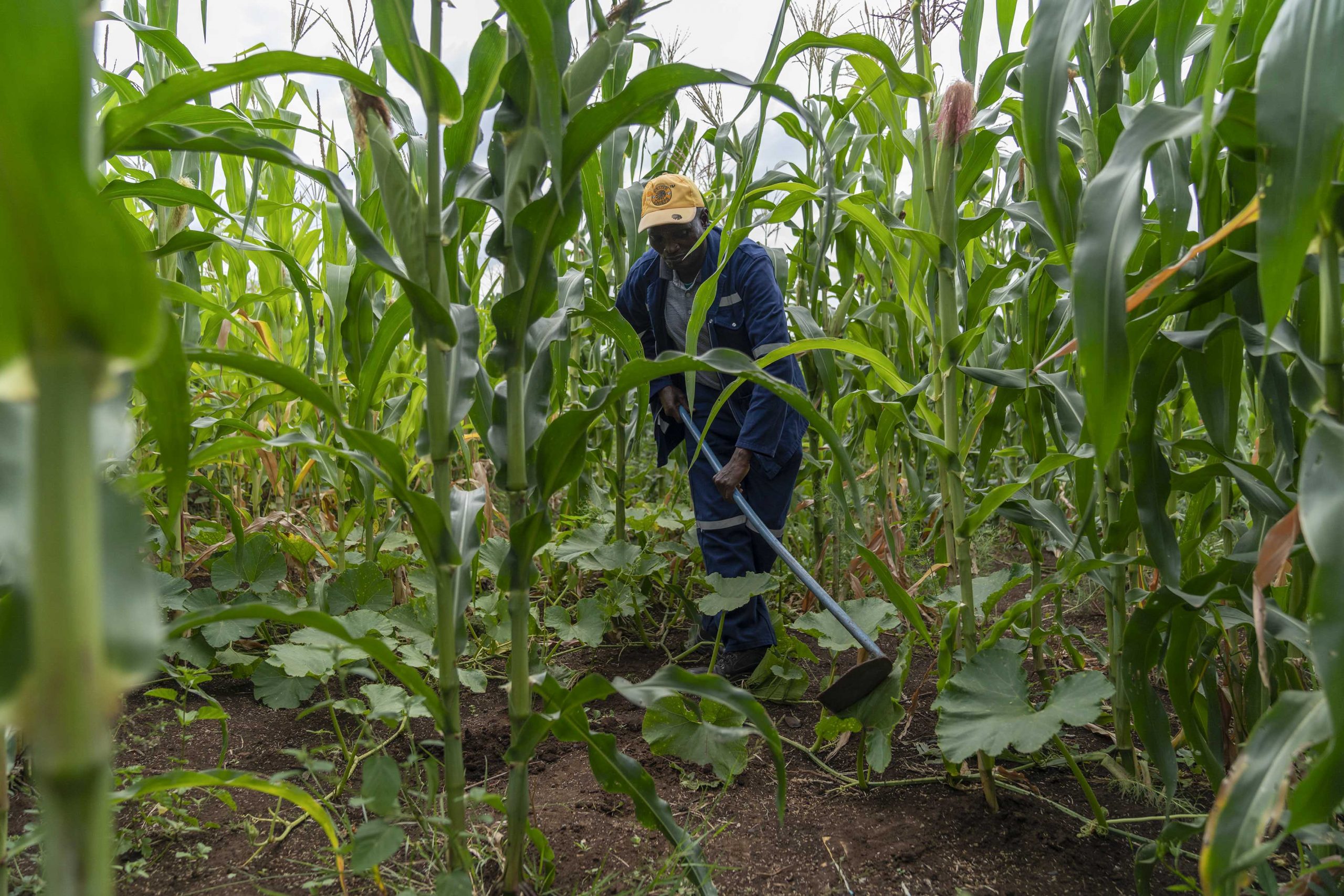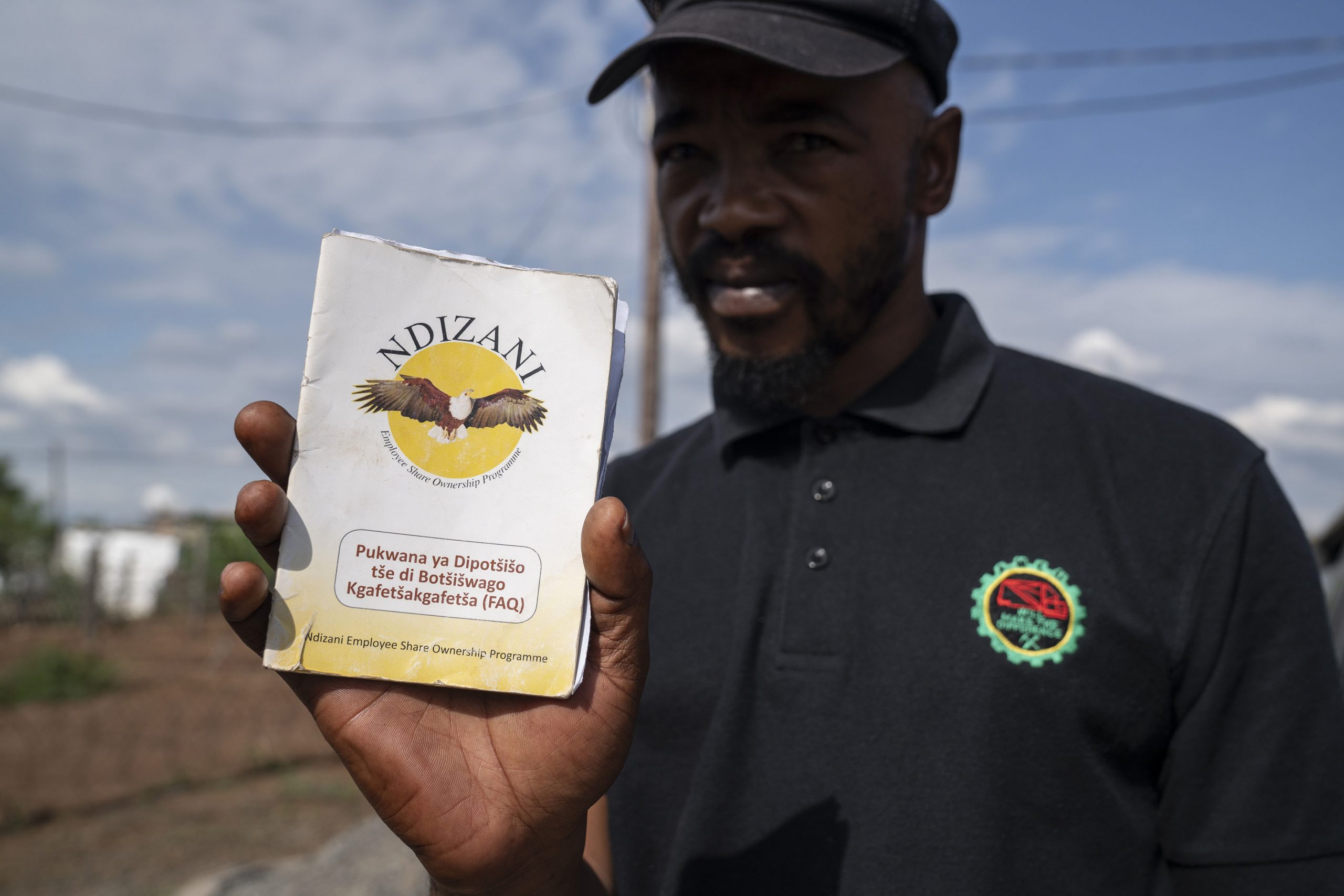Samancor workers bear the brunt of alleged corruption
According to a whistleblower, part of the reason many Samancor workers live in cramped shacks is that the chrome miner has robbed them of billions of rands.
Author:
25 February 2020

Most of the shacks in the Bokamoso shack settlement on the road to Marikana, north of Mooinooi in North West province, are surrounded by yards of bare earth or overgrown weeds. The home of Matthews Shai, 56, is a peculiar exception. It sits alongside a chicken run and a flourishing crop of mielies, below which run vines of squash and tomatoes.
Shai moved into the shack in 1994, the same year he started working at Samancor, the world’s second-largest chrome producer. While his job never delivered the promises of a democratic South Africa, he had hoped his membership in the Ndizani Trust might. The trust was established as a minor shareholder in Samancor in 2007 in the interest of workers affected by the company’s mining operations.
In October 2019, however, Miodrag Kon, a former Samancor director-turned-whistleblower, claimed that corporate corruption at the chrome giant had fleeced Shai and more than 5 000 other Samancor workers and members of the trust of about R1.5 billion over the past 14 years.
Related article:
The bombshell allegations are at the heart of litigation instituted by the Association of Mineworkers and Construction Union, or Amcu. Kon details price-fixing, failures to disclose profits as well as profit-shifting through shelf companies in offshore tax havens.
But as the litigation inches towards court, many of the victims of the alleged widespread corporate corruption, like Shai, continue to live in one-room shacks.
With most of his wages supporting his family in Burgersfort in southern Limpopo, and the proceeds of his membership in Ndizani failing to materialise, Shai has turned to farming during his downtime to feed himself. He sends any excess harvest to Burgersfort.

Neither rest nor relief
David Tshabalala’s daily meals of bread and milk are more typical of the stripped-down diets of mineworkers living in Bokamoso. He lives in a 3x4m shack without access to water or electricity.
Inside the zinc-sheathed wooden frame is a neatly made bed and a corner kitchen containing water canisters, some salt and sugar, and a set of utensils for one. Arranged on Tshabalala’s bedside table are a razor, a candle, some clothes pegs, a roll of toilet paper and a Bible.

Tshabalala’s leather suit bag is empty but for his meticulously ordered payslips. He sends most of the R10 695 he earns each month to Klerksdorp, where he supports a family of six, including one child who is mobility-impaired.
“See? I’m working at Samancor,” he says, pointing to the bare shack mockingly as evidence of his nine years’ employment at the company.
Tshabalala works night shifts at Samancor’s nearby chrome operations. He clocks in at 7pm and is underground by 8pm. He returns home just before sunrise, but says he finds little relief from the night’s work. Exposed to the sun, Tshabalala’s shack bakes during the day. The air inside can be suffocating and sleep is difficult.
Had he benefitted from his membership in Ndizani, says Tshabalala, he would by now have built himself a home of bricks, somewhere cool enough to rest.

Decent homes a pipe dream
Both Shai and Tshabalala work as winch operators. After rock-drill operators have spent the day blasting chrome-rich underground rock faces into smaller pieces of rubble, it is the turn of the winch operators. Operating a two-way winch (or stepping in to do it by hand in the event that the winch breaks), they clear the heavy rubble, preparing the rock face for the next day’s drilling.
And so Samancor’s chrome is dredged, stone by stone, from the mineral-rich bowels of North West.
The back-breaking work turns winch operators’ bodies as hard as the rock itself. Wiseman Nqeto, 48, has wide, square shoulders and powerful forearms. He has worked as a Samancor winch operator since 2012. Before that, he spent 16 years underground at a Lonmin mine in Marikana.

Like many of the workers on the mines in North West, Nqeto hails from the former Transkei. His wife and four of their children still live in Lusikisiki. Their eldest son, however, has moved into Nqeto’s neatly arranged one-room shack and started high school near Marikana.
The move is part of Nqeto’s attempts to play an active role in his children’s lives. “I want a good future for him,” says the steadfast Apostolic Faith Mission congregant. “I want to see him every day.”
But the move has proved challenging. Between long shifts underground and the demands of high school, father and son must find the time between them to clean their home and cook for one another.

Things may have been different had Nqeto received the money the trust owes him. It is his dream, he says, to build a family home closer to the mines where he has worked for most of his life.
With litigation looming that will determine if Samancor’s directors and majority shareholders robbed Nqeto and thousands more workers, the company opened 2020 with a warning that, pending the outcome of negotiations, it may be shedding nearly 2 500 mining jobs. It cited a depressed global chrome price and steep electricity costs.


